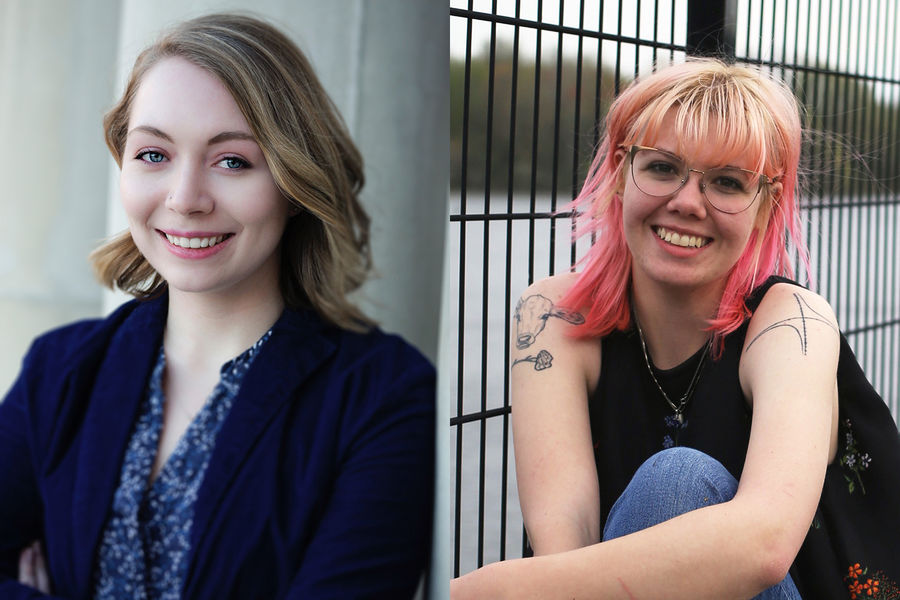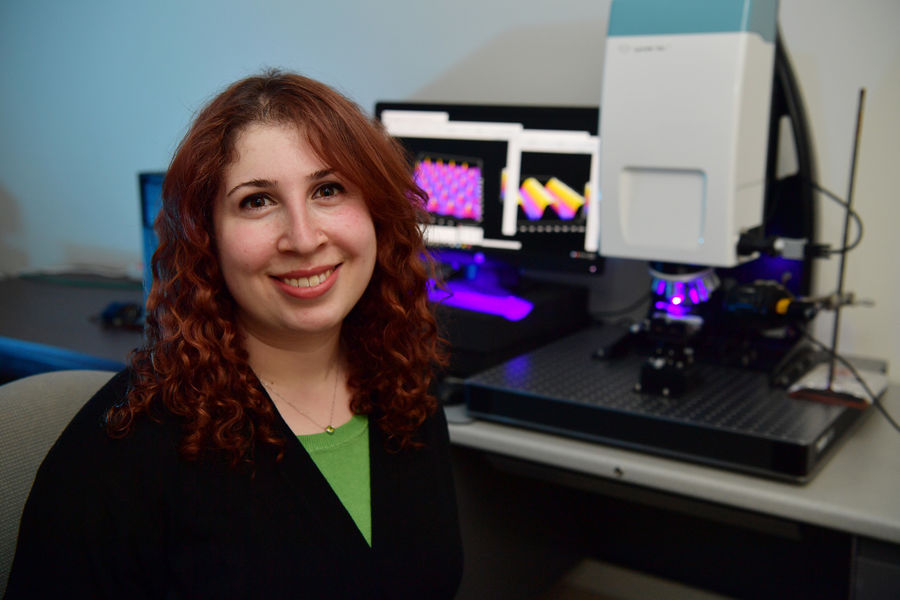Research & Science

Two ����ɫ��ҹ A&S Students Win Prestigious Goldwater Scholarship
Gracen Gerbig and Hayley Shasteen, both ����ɫ��ҹ University students in the College of Arts and Sciences, recently received the Barry M. Goldwater Scholarship, considered the nation’s premier undergraduate award in the natural sciences, math and engineering. They were recognized by President Beverly Warren at the ����ɫ��ҹ Board of Trustees meeting on May 9.

����ɫ��ҹ Undergraduates Named Prestigious 2019 Goldwater Scholars for Science Research
Two ����ɫ��ҹ University undergraduate students have been awarded prestigious 2019 Goldwater Scholarships from the Barry Goldwater Scholarship and Excellence in Education Foundation. The foundation awards the scholarships annually to students studying mathematics, natural science or engineering.
To the Rescue! ����ɫ��ҹ Tuscarawas Students Built Robot That can Douse Fires, Save Lives
����ɫ��ҹ University at Tuscarawas engineering technology students collaborated on their capstone project during the spring semester and unveiled a search and rescue robot on finals night in early May.

Invitation to Lindau Nobel Laureate Meeting Is ‘Icing on the Cake’ for Doctoral Student
As if graduating with your Ph.D., starting a National Research Council (NRC) postdoctoral fellowship, getting married in Nepal and organizing an international research seminar wasn’t already a full plate for ����ɫ��ҹ University doctoral student Greta Babakhanova, how about a little dessert?

Public Health Professor’s Study on Blood Lead Levels Recognized
����ɫ��ҹ University Professor Madhav P. Bhatta, Ph.D., MPH was featured in MedicalResearch.com, a domain of medical news and exclusive interviews, for an interview on his study, “Elevated Blood Lead Levels Among Resettled Refugee Children in Ohio, 2009 - 2016.”

A 4,000-Mile Journey Leads to “Sticky” Award-Winning Research for ����ɫ��ҹ Graduate Student
Though she had an interest in science at an early age, Raissa Mendonca had no idea she would end up over 4,000 miles away from her hometown of Recife, Brazil, studying and doing award-winning ecological research in the College of Arts and Sciences at ����ɫ��ҹ University in Kent, Ohio. She probably did not expect to be wearing a bug net over her head in Manitoba, Canada, either.

A 4,000-Mile Journey Leads to “Sticky” Award-Winning Research for ����ɫ��ҹ Graduate Student
Though she had an interest in science at an early age, Raissa Mendonca had no idea she would end up over 4,000 miles away from her hometown of Recife, Brazil studying and doing award-winning ecological research in the College of Arts and Sciences at ����ɫ��ҹ University in Kent, Ohio. She probably did not expect to be wearing a bug net over her head in Manitoba either. Now, while pursuing her Ph.D. at ����ɫ��ҹ, Mendonca conducts research in Costello’s lab that focuses on ecotoxicology and biogeochemistry and how environmental disturbances affect aquatic communities and ecological processes. One of her recent projects resulted in her being first author on a peer-reviewed journal article and earned her a $5,000 award to continue pursuing her research.

National Foundation Funds Grant to Preserve Audio And Audiovisual Recordings Contained in the University’s May 4 Collection
����ɫ��ҹ University Libraries’ May 4, 1970 Collection has been selected by the Council on Library and Information Resources (CLIR) to benefit from a $30,561 award through the Recordings at Risk grant program, generously funded by The Andrew W. Mellon Foundation.

Research Into “Little Things” Leads to Big Experience for Local High School Student
Imagine being a 17-year-old high school student, and in your first semester of a geology research internship, your professor asks you to identify an extinct 300-million-year-old, tiny and unknown crustacean specimen. Megan Schinker, then an ambitious Stow-Munroe Falls High School junior, jumped right in. Now a senior in high school, Ms. Schinker, chose ����ɫ��ҹ as her undergraduate school where she will pursue a double major in geology and chemistry starting fall 2019.

Innovation on the Move
From the ����ɫ��ҹ Magazine, “I want to be a voice in the renewable energy community,” says Angela Deibel, reluctant to give up her marketing edge. “I don’t want to just be an engineer—though I love it—but I want to tell [the public] about renewable energy.”